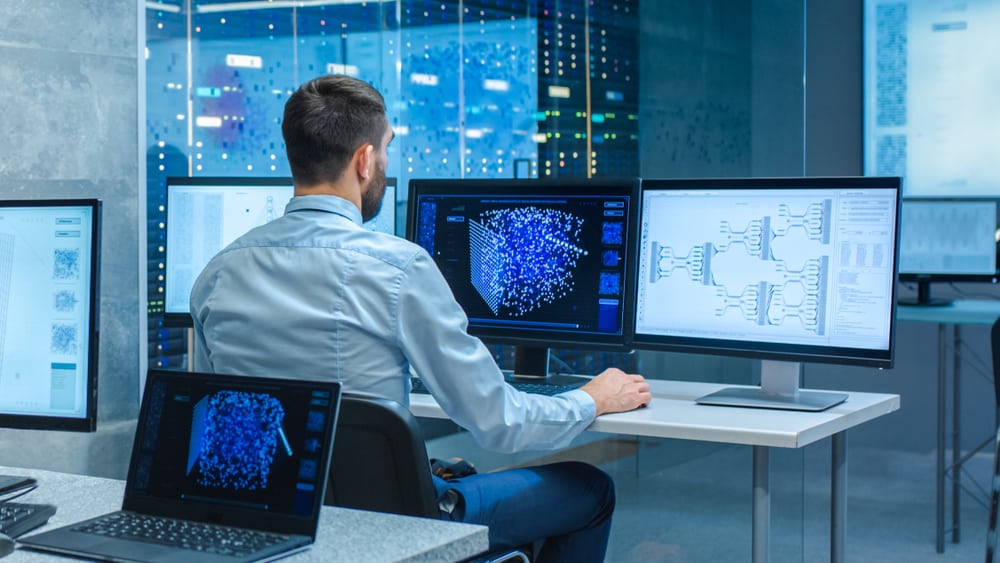Acquired by Adobe in 2018, Magento 2 is currently the most popular eCommerce platform and for many good reasons. Upgraded in 2015 from the original Magento 1 release from 2008, Magento is an open-source content management system. As such, the basic version is free of charge.
And “free” doesn’t mean “garbage” either. Magento 2 comes out of the box with a host of useful features—marketing tools, promotional tools, conversion tools, SEO tools, customer accounts, guest checkout, and one of the most streamlined one-page checkout experiences on the market. Additionally, the Magento community is one of the most robust and active user and developer communities on the web.
But “free” is a relative term. One of the best reasons to go with Magento 2 over other eCom platforms is how flexible and customizable it is. But that takes skill. Magento 2 is reasonably user-friendly out of the box, but it isn’t as beginner-friendly as SaaS competitors like Shopify or BigCommerce. Much of the flexibility of open-source Magento 2 is the ability to get down and dirty in the source code. That task takes the skills of a developer.
But Magento 2 isn’t that different from competitive platforms in this regard. Just because Shopify is easy to use doesn’t mean that everyone with an account knows how to design an appealing customer journey that converts traffic into revenue. Regardless of the platform, most eCommerce entrepreneurs will need expert help to take their stores to the next level.
According to the Harvard Business Review, the COVID-19 pandemic changed the shopping habits of 80% of the people in affected populations. The upshot—online stores are here to stay. It’s a highly competitive marketplace, and it’s time to get in the game. Ready to find a Magento 2 developer to build you the perfect eCommerce store? Here are five things to look for.
1. They Have a Magento 2 Development Track Record
Some website developers may have the basic skill sets that qualify them to develop a Magento 2 site, but they may have never actually developed a Magento 2 site. There’s no reason for them to cut their teeth on your dime. Even if they quote you a reasonable price, the opportunity cost of an underperforming store is not worth it.
Get it done right. Choose a developer who has a track record of developing Magento 2 sites that convert traffic to customers.
Ideally, go with a developer who is certified in Magento 2 development. Other than reliable testimonials, a Magento 2 certification is the most concrete evidence that the developer in question knows his/her way around Magento 2.
Magento 2 offers five different classes of certification:
- Magento 2 Certified Solution Specialist. Magento 2 Certified Solution Specialists have been tested in their ability to align Magento 2 with an organization’s business objectives, omit any unnecessary customizations, and add and optimize any necessary features.
- Magento 2 Certified Professional Developer. This deeper certification is given to developers who have proven their ability to effectively manipulate the Magento 2 source code. This includes admin modifications, catalog structure, checkout process customizations, database changes, functionality changes, order management customizations, and UI modifications.
- Magento 2 Certified Associate Developer. Be wary of this certification. It is very basic. It only certifies that the developer has a cursory knowledge of the most basic features of Magento 2. Developers with this certification don’t necessarily have the skill set to do the deep code changes to customize Magento 2 in a safe and secure way.
- Magento 2 Certified Professional Front-End Developer. This certification confirms that a developer is proficient with the Magento 2 front-end—that is, the part that the customer interacts with, including themes, payment interface, design, etc.
- Magento 2 Certified Professional JavaScript Developer. This certification confirms a developer’s proficiency with Magento 2 JavaScript plugins.
2. They’re Mindful of Security

The upgrade from Magento 1 to Magento 2 included the correction of several security vulnerabilities, but no website or software solution is invulnerable to online threats like data theft, ransomware, and other forms of cybercrime.
When we’re talking about an open-source application with code that developers routinely manipulate, the importance of cybersecurity best practices becomes even more critical. Manipulation of the code has the potential to introduce vulnerabilities into the code that didn’t exist in the first place.
Magento 2 security threats to be aware of include:
- Credit Card Information Theft. This serious cyberthreat may leave your customers’ credit card information vulnerable to skimming and theft, resulting in a serious loss of brand trust and very real damage or hassle to your customers.
- Botnetting. Botnetting involves the use of malicious “bot” programs to infiltrate your site and perform malicious activities, like the mass-sending of spam or phishing emails from your server. This could result in your domain getting blacklisted.
- Remote Code Execution. An improperly secured Magento site may be vulnerable to remote code execution—the running of unverified code on your store in an attempt to gain access to your data and even your admin privileges.
- Server Attacks. Magento 2 sites may be hosted on a server that is under your control, which means you have to protect the server from attacks. The most common server attack is “distributed denial of service” (DDoS), which deliberately overwhelms the server with fake traffic to block legitimate traffic and reduce sales.
- Cross-Site Scripting. Cross-site scripting attacks allow unverified scripts to run on your website when users visit the page, allowing their systems to become infected.
- Site Vandalism. Anarchic cybercriminals may break into your store with no purpose other than to deface the site.
Look for a Magento 2 developer who takes these security threats very seriously. Even if your store does not have regulatory compliance burdens, consider a developer who adheres to the standards set forth by widely-accepted regulatory controls like ISO 27001 and PCI DSS. Find out what tests they run on their code and consider a third-party penetration test to expose vulnerabilities that a cybercriminal might exploit.
3. They Mesh Well With Your Organizational Style and Needs
This requirement doesn’t relate to the developer’s proficiency with Magento 2 as much as it does with the developer’s suitability to work with your organization. Not every developer is a good fit for every eCommerce entrepreneur.
Take your time getting to know your potential Magento 2 developer. Don’t hesitate to shop around and see who gels with your organizational style. Even the most talented, well-credentialed, and well-reviewed Magento 2 developer in the world may be a chore to work with and produce an underperforming site if you butt heads. Make sure your Magento 2 developer aligns with your vision and has the bandwidth and enthusiasm to execute on that vision.
4. They’re In-Line With Your Development Budget

Some organizations gravitate toward Magento 2 because of the cost—i.e. free. The enterprise editions of Magento 2 come with annual fees, but those fees are very competitive within the eCommerce platform market.
But nothing is completely free. To customize a Magento 2 store properly, with an effective customer journey and proper attention paid to security, most eCommerce entrepreneurs will need the help of a professional Magento 2 developer.
This doesn’t mean you can’t stick to a budget. A Magento 2 website development project currently ranges between $5,000 and $100,000. The big range accounts for the amount of customization, the complexity of the site, and the intricacy of the customer journey, including allowances for custom coding and security standards.
You can find a great Magento 2 developer at the lower end of the price range if they rigorously adhere to a lean approach, performing no unnecessary customization. Why do $5,000 worth of coding when a $200 plug-in would produce nearly the same result? Find a Magento 2 developer with the focus and discipline to make only the customizations that will concretely improve the customer journey, driving more revenue.
5. Previous Clients Have Praised Their Magento Development Work
One of the best indicators of future success is past performance. Look for a developer who has a strong record of quality Magento 2 development work—not just in the portfolio, but in the testimonials.
It can be easy to inflate a portfolio, but faking a reference is much harder. Look for testimonials that can be traced back to their sources. Ask for permission to contact the developer’s past clients. Make sure that they are clients for whom the developer actually created a Magento 2 website—not Shopify, not WooCommerce, not BigCommerce, etc.
If you have the opportunity to interview the developer’s past clients, find out what it was like to work with the developer. How well did the developer follow instructions? Did the developer take the project in new and interesting directions? Bring innovative ideas to the table? Did the final website meet expectations? Exceed them?
If possible, try to get a read on how the Magento 2 website performs. Be careful, though—a brilliant Magento 2 site could still fail if the site owner markets ineffectively or failed to do their product due diligence. An underperforming online store is not necessarily the developer’s fault. But an online store that is succeeding like gangbusters is a good sign!
Conclusion
Selecting your Magento 2 developer is a big commitment. It may feel like the success of your entire business hangs in the balance, and that is not entirely wrong. But by paying attention to the developer’s credentials, track record, testimonials, security adherence, organizational style, and ability to perform within your budget, you can make that commitment and succeed.

